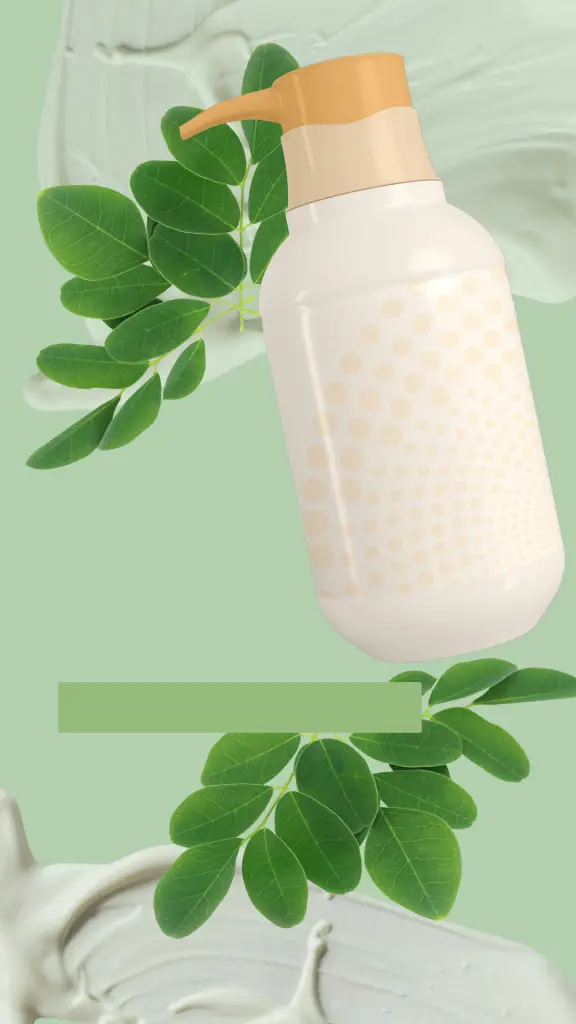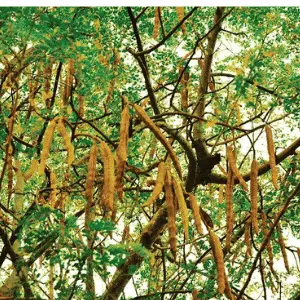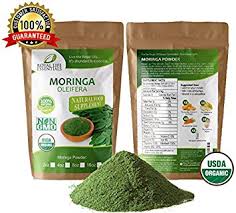Moringa Oleifera (MO), a plant from the family Moringacea is a major crop in Asia Africa. Moringa has many health and nutritional benefits.
Moringa health benefits are nothing but miraculous. In this article, we will discuss what are the benefits of Moringa leaves, the benefits of Moringa, the effectiveness, and the safeness of the herb in chronic disease.
Moringa has nutrients in the leaves, pods, and seeds.
What are the Benefits of Moringa Leaves?
Moringa oleifera (Moringaceae) is a fast-growing softwood tree indigenous to sub-Himalayan tracts of Northern India.
Moringa seed is a promising source of medicinal benefit because of its high nutrient value of monounsaturated fatty acids with a high monounsaturated/saturated fatty acids ratio. The nutritional content of Moringa. The benefits of Moringa leaves are enormous.
Moringa is also rich in protein and amino acids. These amino acids are important nutritionally because the body needs protein and amino acids.
The Moringa tree grows rapidly, therefore it is very valuable to the locals who depend on it. All parts of the Moringa tree (leaves, seeds, roots, and flowers) are suitable for human and animal consumption.
The leaves that are rich in protein and other minerals are used for human consumption and traditional medicine.

Moringa Seeds Benefits
Commercially, Moringa oil is known as Behen oil. Moringa oil can be a substitute oil for olive oil because it has similar properties.
- Nutritional powerhouse: Moringa seeds are packed with essential nutrients, including vitamins (such as vitamin C, vitamin A, and vitamin E), minerals (such as calcium, iron, and magnesium), and protein. They provide a concentrated source of nutrition.
- Antioxidant properties: Moringa seeds are rich in antioxidants, such as flavonoids, phenolic acids, and vitamin C. These antioxidants help protect the body against oxidative stress and damage caused by free radicals.
- Anti-inflammatory effects: The compounds found in Moringa seeds have been shown to possess anti-inflammatory properties. They may help reduce inflammation in the body, which can be beneficial for managing chronic inflammatory conditions.
- Supports cardiovascular health: Moringa seeds have been found to have cardioprotective effects. They may help lower cholesterol levels, reduce blood pressure, and improve overall heart health.
- Boosts immune system: The high vitamin C content in Moringa seeds supports immune function. They help strengthen the immune system and protect against infections and diseases.
- Enhances digestion: Moringa seeds contain fiber, which aids digestion and promotes regular bowel movements. They can help alleviate constipation and support a healthy digestive system.
- Supports weight management: The fiber content in Moringa seeds can contribute to a feeling of fullness, which may help in weight management by reducing overeating and cravings.
- Supports healthy skin: Moringa seeds are rich in antioxidants and nutrients that promote healthy skin. They help protect against oxidative damage, reduce signs of aging, and maintain the skin’s natural glow.
- Supports bone health: Moringa seeds are a good source of calcium and phosphorus, which are essential minerals for maintaining strong and healthy bones. They may help prevent bone-related disorders like osteoporosis.
- Natural energy booster: Moringa seeds are known to provide a natural energy boost due to their nutrient density. They can help combat fatigue and increase vitality.
It’s important to note that while Moringa seeds offer potential health benefits, individual results may vary. If you have any specific health concerns or conditions, it’s always best to consult with a healthcare professional before incorporating Moringa seeds or any new supplement into your routine.
Moringa Antioxidant Properties
Several studies have shown that Moringa had excellent antioxidant properties. Raw or crushed seeds ahs have been used to treat stomach pain, poor vision, and to aid digestion.
We know that antioxidants have been used to prevent cancer and aging.
In the labs, Moringa has been shown to exhibit antibacterial properties. The protein in Moringa causes bacterial cell damage.
In some underdeveloped countries, Moringa seeds are used to purify the drinking water.
Another study showed Moringa seeds possess liver-protective properties that prevent liver damage and fibrosis.
Moringa seed at 750mg per day was given for 8 weeks and it reduced the heart rate and improved cardiac diastolic function. In addition, left ventricular wall thickness was reduced.
Moringa also has antidiabetic properties.
Moringa oleifera Nutritional Benefits
Moringa is extremely nutritious. Moringa has more nutritional value than many superfoods. For example:
- Moringa has 7 times as much Vitamin C as an orange. We know that vitamin c is needed to sustain the immune system. Especially during the winter season. Vitamin C is also needed to help heal wounds, cuts, and burns.
- Moringa has 4 times as much Vitamin A as carrots. We know that we need Vitamin A to help vision, the optic nerve, the immune system, and cell growth. Vitamin A or retinoid comes from two different sources: plant sources and meat sources. Moringa provides the plant source.
- Moringa has four times the calcium of milk. Calcium is needed for proper muscle and bone growth. Calcium is also needed for the proper utilization of Vitamin D.
- Moringa has three times the potassium of bananas. This is a big one because we need potassium for so many body functions. We need potassium for proper muscle function and proper heart function. Potassium is present in all body tissues and is required for normal cell function because of its role in maintaining intracellular fluid volume.
- Moringa has two times the protein of yogurt. Protein is important for muscle and bone repair. You also use protein to make enzymes and hormones. Protein is an important building block of bones, muscles, cartilage, skin, and blood.
As you can see, Moringa has a plethora of vitamins and minerals. In addition to the vitamins and minerals that are listed above, Moringa also has the following:
- Ca – Calcium
- K – Potassium
- Cu – Copper
- S – Sulphur
- Zn – Zinc
- Cr – Chromium
- B – Boron
- Mg – Magnesium
- P – Phosphorus
- Fe – Iron
- Na – Sodium
- As – Arsenic
- Mn – Manganese
- Se – Selenium
- A – Vitamin A
- B1 – Vitamin B1
- B2 – Vitamin B2
- B3 – Vitamin B3
- C – Vitamin C
- E – Vitamin E
- K1 – Vitamin K1
Amino Acids in Moringa
- Isoleucine
- Leucine
- Valine
- Lysine
- Methionine
- Tryptophan
- Phenylalanine
- Threonine
- Histidine
Moringa Has Benefits for Pregnant Women
In Senegal, the World Health Service conducted a test to see if the Moringa leaf powder would prevent malnutrition in pregnant and breastfeeding women and children. The test was done by a Morinaga well-known expert, Mr. Lowell Fuglie.
The results were astonishing! The children maintained or increased their weight. The children also have improved health.
The pregnant women recovered from anemia. Pregnant women also had higher birth weight babies.
[su_quote cite=” Lamine Diakite, an Official from Red Cross” url=”https://www.fac.org.ar/scvc/llave/PDF/toubouli.PDF”]Lamine Diakite, from the Red Cross, stated Ounce for ounce, moringa leaves contain more beta carotene than carrots, more calcium than milk, more iron than spinach, more Vitamin C than oranges, and more potassium than bananas. Its protein content is comparable to that of milk and eggs, and its leaves are still available for harvest at the end of the dry season, when other food may be scarce. Malnourished children gained weight when put on a timely dietary supplement made from the leaves, Mr. Diakite says.[/su_quote]
Ways to Eat Moringa
In Africa, the leaves were boiled like spinach. Indians used the seed pods as a delicacy.
The Senegalese people make a “sauce” out of Moringa. The plant is boiled down so that is is highly concentrated. The Moringa plant is also treasured in Africa because unlike other vegetables, the Moringa plant is very hardy. This plant can withstand tough drought conditions.
Moringa Dosage
There are no standardized dosages for Moringa. However, the dosages that were used were from 800mg to 1000 mg once a day. However, as always it is best to start out at a lower dosage and work your way up. You can also buy Moringa powder and make tea.
[su_note note_color=”#fde575″]Moringa should be taken on an empty stomach because it can possibly cause stomach upset. Pregnant women should be cautious because it can produce uterine bleeding. [/su_note]
Buy Your Moringa Today!!!
Conclusions
Moringa is a promising plant. There have been over 800 studies done on the benefits of Moringa. The benefits of Moringa is vast and I suspect it is due to the nutritional properties.
You see, we know that the majority of diseases and disorders are actually nutrient deficiences. When the body does not have adequate nutrition, it goes into a state of inflammation. Most of the diseases and disorders listed above are related to diet.
In fact, Type 2 diabetes is a complete lifestyle disease and it can be modified. I will be doing a series of articles on the benefits of Moringa. Stay tuned!
References:



